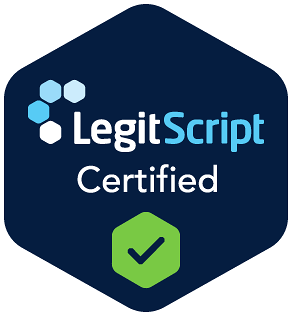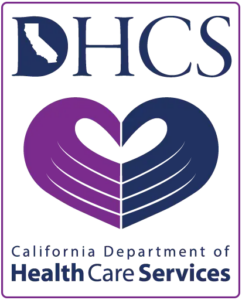Both medication-assisted treatment (MAT) and medical detox are valuable tools in treating addiction. Medical detox is essential for managing withdrawal safely, while MAT can offer continuing support for long-term recovery. It’s critical to consult with healthcare professionals to determine the appropriate treatment plan based on your needs and situation.
Understanding the Differences in Addiction Treatment
Understanding the differences between medical detox and medication-assisted treatment is crucial for people and families making their way through addiction recovery. Although both play important roles in recovery, they serve specific purposes and involve different approaches.
What is Medical Detox?
Medical detox is the first step in your recovery journey. For some individuals, going through detox from drugs or alcohol can cause withdrawal symptoms. Withdrawal symptoms occur when a substance is reduced or eliminated from the body. Medical detox focuses on safely and comfortably managing withdrawal symptoms, which can be life-threatening.

- The purpose of medical detox is to manage and reduce the physical pain and discomfort and potentially life-threatening dangers of withdrawal.
- The duration of a medical detox is usually short-term, from a few days to a couple of weeks. It depends on the substance of abuse and the severity of the addiction.
- Detox often takes place in a hospital or specialized detox facility with medical supervision.
- Medical detox may include medications to ease withdrawal symptoms and prevent complications.
- The focus of medical detox is mainly on physical stabilization and doesn’t address the psychological and behavioral features of addiction.
Withdrawal symptoms may differ for different people and may be mild or severe. Knowing the symptoms can make quitting easier, as can letting your support system know. Symptoms depend on:
- The type of substance you’ve been using
- How long someone has been using a substance
- Age
- Physical health
- Your emotional and mental state
Withdrawal symptoms can include:
- Sleep problems
- Cravings
- Agitation or irritability
- Restlessness
- Lack of concentration
- Mood swings
- Anxiety or depression
- Headaches
- Body aches and pains
- Nausea, vomiting, or diarrhea
- Sweating
- Shaking or tremors
Severe withdrawal symptoms may include:
- Psychosis (disconnect from reality)
- Confusion
- Disorientation
- Seizures
These symptoms may last for a few days or weeks. Cravings may last longer.
There are several prescription medicines that medical providers may prescribe as drug withdrawal treatments to help reduce the person’s discomfort and pain. In general, taking medications that can be addictive must be monitored by a medical professional. Administration of certain medications can help reduce life-threatening complications that could be fatal if the person is left untreated. Common detox medications include:
- Anticonvulsants: Anticonvulsants are prescribed to prevent seizures, which is a helpful part of alcohol detox. They can also reduce alcohol cravings.
- Benzodiazepines–Benzodiazepines help reduce the severity of alcohol or benzodiazepine withdrawal symptoms. Benzodiazepines help reduce the occurrence of seizures and delirium tremens (DTs).
- Methadone–Methadone decreases the cravings for opioids and withdrawal symptoms and helps prevent people who are addicted to prescription opioids from using illegal opioids like heroin.
- Buprenorphine–Buprenorphine reduces symptoms of opioid withdrawal and cravings.
What is Medication-Assisted Treatment?
MAT detox combines medication with behavioral therapies and counseling to promote an all-inclusive approach to treating addiction. Medication-assisted treatment is anchored by the understanding that addiction is a complicated, chronic disease that requires an integrated treatment strategy. By examining both the physical and psychological aspects of substance use disorders (SUDs), MAT detox significantly improves recovery outcomes, prevents relapse, and adds to the overall quality of life for people in recovery.
- The purpose of MAT is to support long-term recovery by reducing cravings, preventing relapse, and focusing on the behavioral aspects of addiction.
- Typically, MAT is long-term, frequently lasting several months or even years.
- MAT can occur in treatment centers, outpatient clinics, or doctors’ offices.
- FDA-approved medications are prescribed to help manage withdrawal symptoms, reduce cravings, and block the effects of substances.
- MAT is a holistic approach that addresses the physical and psychological elements of addiction.
To help manage withdrawal symptoms and cravings, detox centers use FDA-approved medications such as:
- Methadone–Methadone is a treatment for opioid addiction that reduces withdrawal symptoms and cravings without producing the euphoria associated with illicit opioids. It is usually dispensed daily in regulated clinics.
- Buprenorphine–Buprenorphine offers similar benefits as methadone but with less risk of abuse. It blocks the effects of other opioids.
- Naltrexone–Naltrexone does not reduce opioid cravings but is effective in preventing relapse. It’s usually used after detox as a daily pill or monthly injection. It is also effective for alcohol addiction by reducing the pleasurable effects of alcohol.
- Disulfiram–Used to treat alcohol addiction, this medication creates an adverse reaction when alcohol is consumed.
- Acamprosate–This helps normalize brain function by decreasing the physical and emotional distress linked to alcohol withdrawal.
Integrating Detox and MAT in Treatment Plans
MAT plays a vital role in enhancing the effectiveness of a medical detox program. During the initial detox stage of recovery, people go through the elimination of addictive substances from their bodies with 24-hour supervision. Detox centers often use medications to manage the withdrawal symptoms and cravings. A medical detox could also be termed “MAT detox.”
Although detox is the crucial first step, lasting recovery requires a continuum of care. This is where MAT programs extend beyond the initial detox stage. Providing ongoing support and medication management helps people maintain their sobriety and prevent relapse.
Integrating these two treatment approaches with other evidence-based therapies, such as counseling, behavioral therapy, and aftercare, reinforces the skills and techniques needed for lasting recovery. Research has shown that MAT increases retention in treatment programs by up to 74%. This significantly improves long-term outcomes. By integrating medication therapies with comprehensive care, people have a better chance at achieving lasting sobriety and improving their quality of life.
Choosing the Right Treatment Approach
A substance abuse treatment plan is not just a roadmap but a cooperative journey toward recovery. It’s a guide that includes initial assessments, sobriety goals, and strategies to address your needs and circumstances. Your treatment approach is a commitment to recovery, fostering an agreement between you and your support team. It’s not about the plan alone, but the person it’s designed for.
It’s essential to have a structured treatment plan for various reasons, including:

- Provides direction: A structured treatment plan helps you maintain focus and direction and assures that all facets of your recovery are examined.
- Promotes Active Participation: Being involved in the planning process encourages active participation in your recovery and empowers you to take control of your journey.
- Improves Communication: A detailed plan ensures that all treatment team members, including other healthcare providers and family members, are on the same page regarding your goals and progress.
If you are suffering from addiction and a mental health issue, you need a treatment program that addresses both problems simultaneously. Only treating one condition can make the other worse. This situation is called a dual diagnosis and requires a dual diagnosis program.
Detox Safely At Surf City Detox
Are you struggling with an addiction? Is someone you love suffering? You can start your recovery journey at Surf City Detox in Huntington Beach, CA. What can we do for you after detox? Surf City is not just a medical detox center. We can offer you an integrated approach from MAT detox along the continuum of care to medication-assisted treatment in a residential program to aftercare.

Comprehensive Care
Surf City has a residential program where you live in a safe, secure facility, away from the triggers that may cause a relapse. You will receive MAT and 24-hour supervision. After completing the formal treatment program, we know that you will need a plan for your life after treatment., Our aftercare program will help you transition back into independent life.
Integrated Psychotherapy
Our licensed, experienced psychologists and therapists are trained in providing evidence-based behavioral therapies such as:
- Cognitive-Behavioral Therapy (CBT)
- Dialectical Behavior Therapy (DBT)
- Individual therapy
- Group therapy
- Family Therapy
- Holistic Therapy
- Dual Diagnosis Treatment
However, it’s not about the plan, it’s about the person it’s designed for–you. We have the resources to create an individualized plan built around your needs. You have nothing to lose except your substance use disorder, so contact us today.
Dr. Eric Chaghouri is a 2007 graduate from the University of California, Los Angeles, where he earned his B. A. in Biology with Summa Cum Laude honors. While at UCLA, he helped the men’s varsity volleyball team earn a National Championship in 2006. He was named the UCLA Scholar-Athlete of the Year in 2007.
He earned his medical degree from the Keck School of Medicine in 2011. He completed his internship training in 2008 at Cedars-Sinai Medical Center and the remaining three years of residency in general adult psychiatry at the Los Angeles County and University of Southern California Medical Center. He served as the Chief Resident in psychiatric emergency services during his fourth year of residency. He also served as Resident Clinical Instructor and Volunteer Faculty in the Department of Psychiatry at the Keck School of Medicine.
After completing residency, Dr. Chaghouri accepted a fellowship position in forensic psychiatry at the prestigious USC Institute of Psychiatry and Law. His scholarly activities included publishing in Legal Digest and presenting research findings at the Keck School of Medicine annual conference.
Since completing his forensic psychiatry fellowship, he has established a successful and thriving practice in Southern California, focusing on treatment of co-occurring psychiatric and addictive disorders. He has developed a strong clinical team of practitioners who share similar goals and philosophies regarding psychiatric treatment, including providing cutting-edge interventional treatments for psychiatric conditions. He works in an array of capacities with attorneys, courts, and other parties in actual or potential litigation. He also has extensive experience consulting and providing opinions on psychiatric issues for major television networks. Dr. Chaghouri’s interests include addiction medicine, substance use disorders, forensic psychiatry, medical ethics, psychological autopsy, gender wellness, and evidence-based treatment of psychiatric conditions.



